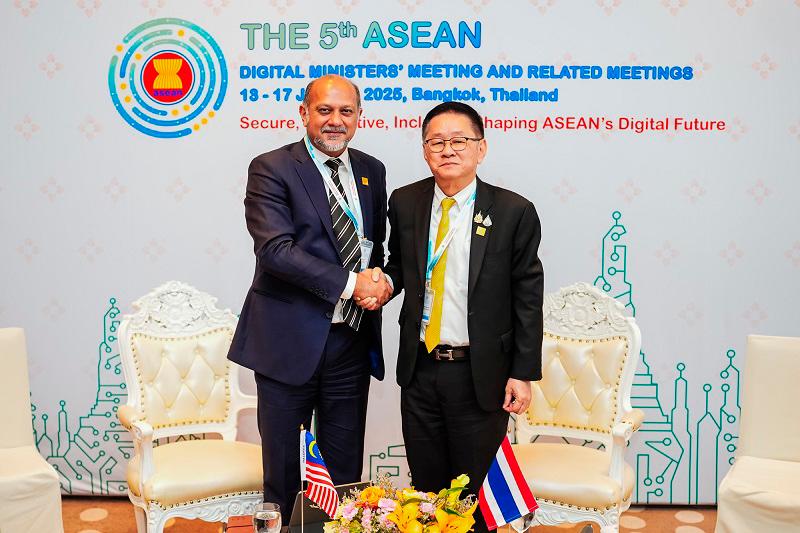BANGKOK: The Thai government has expressed interest in collaborating with Malaysia on digital governance to enhance the quality of life for its citizens.
Deputy Prime Minister and Minister of Digital Economy and Society of Thailand, Prasert Jantararuangtong, said Thailand is keen to work with ASEAN member states to further elevate the standard of living in the region.
“The Malaysian government has excelled in implementing digital government initiatives, particularly in areas like government digitalisation and cloud technology. We are eager to collaborate with Malaysia in these sectors to improve the quality of life for Thai citizens,” Prasert said during a bilateral meeting with Malaysia’s Minister of Communications and Digital, Gobind Singh Deo.
The bilateral meeting was held on the sidelines of the 5th ASEAN Digital Ministers’ Meeting (ADGMIN) held here on Thursday.
He also praised Malaysia’s progress in several areas, including digital or smart city projects, cybersecurity, gaming and animation, as well as the startup ecosystem.
Meanwhile, Prasert highlighted the importance of ADGMIN as an opportunity for Thailand to demonstrate its digital capabilities and leadership within ASEAN.
He emphasised that developing digital infrastructure and fostering innovation are essential for enhancing Thailand’s competitiveness.
“Thailand stands to gain significantly from this meeting, including fostering digital collaboration with ASEAN member states and dialogue partners, exchanging knowledge and technology, promoting the digital economy, and enhancing digital skills among Thais,” he said.
He added that strengthening cybersecurity and safeguarding personal data remain top priorities, as they are critical for building investor confidence and supporting sustainable economic growth.
Earlier, Thai Prime Minister Paetongtarn Shinawatra officiated the opening ceremony of the 5th ASEAN Digital Ministers’ Meeting, which convened in Bangkok on Thursday.
The event was attended by representatives from the 10 ASEAN member states, key dialogue partners such as China, Japan, South Korea, the United States, India, the International Telecommunication Union (ITU), and representatives from Timor-Leste, with over 300 participants.









